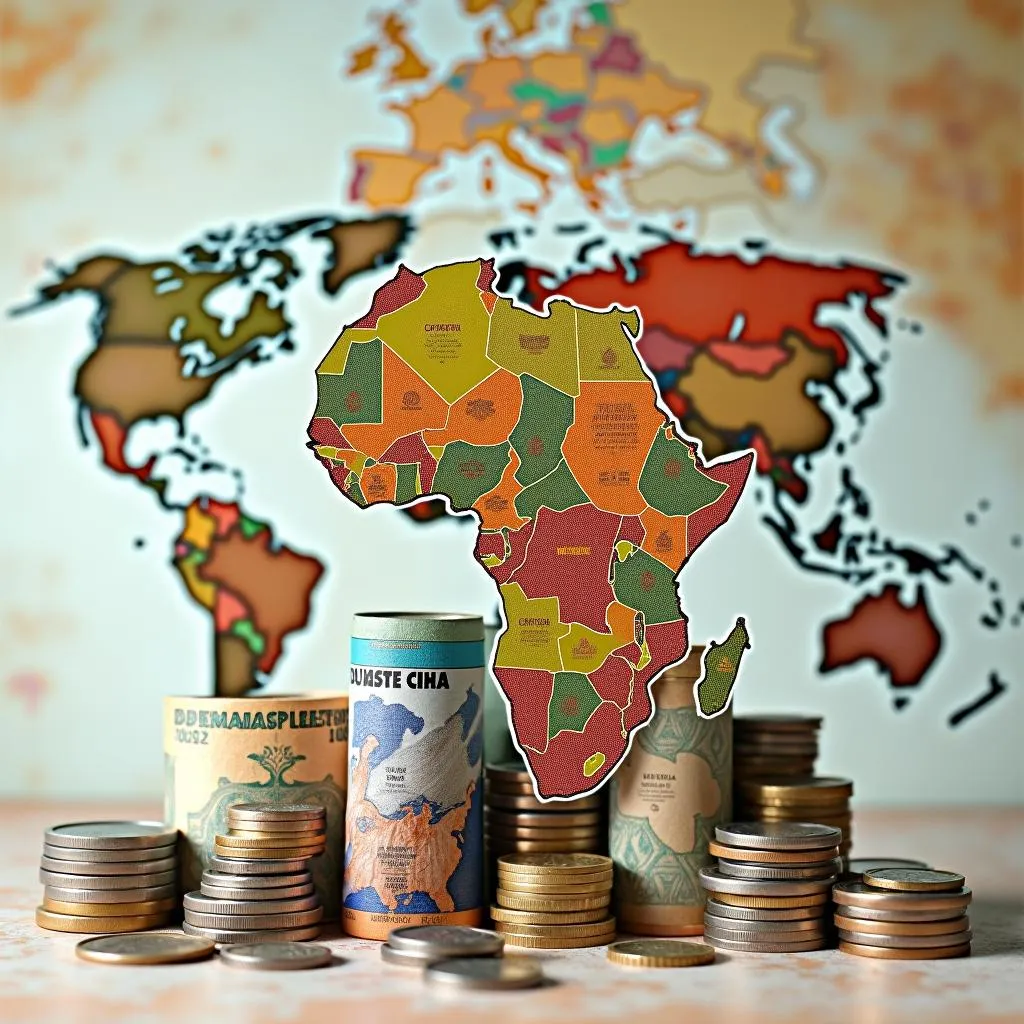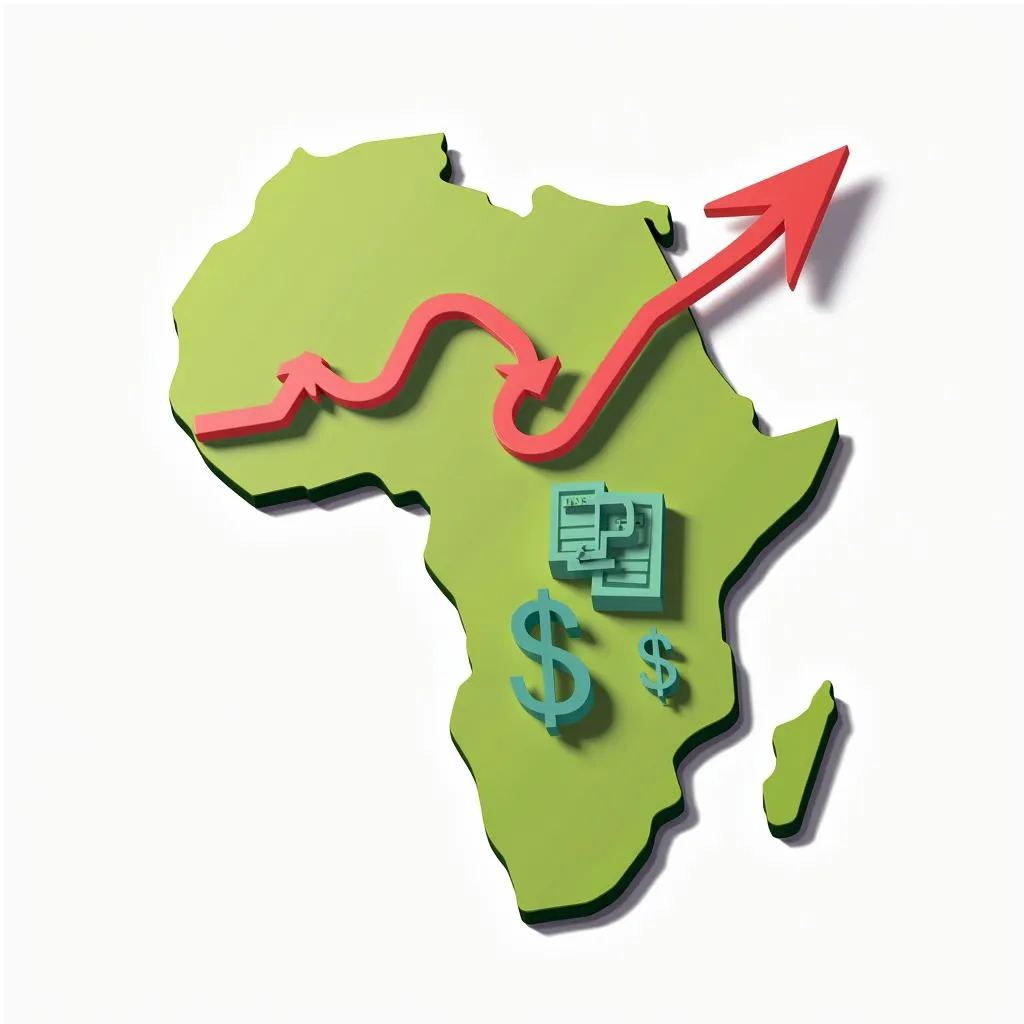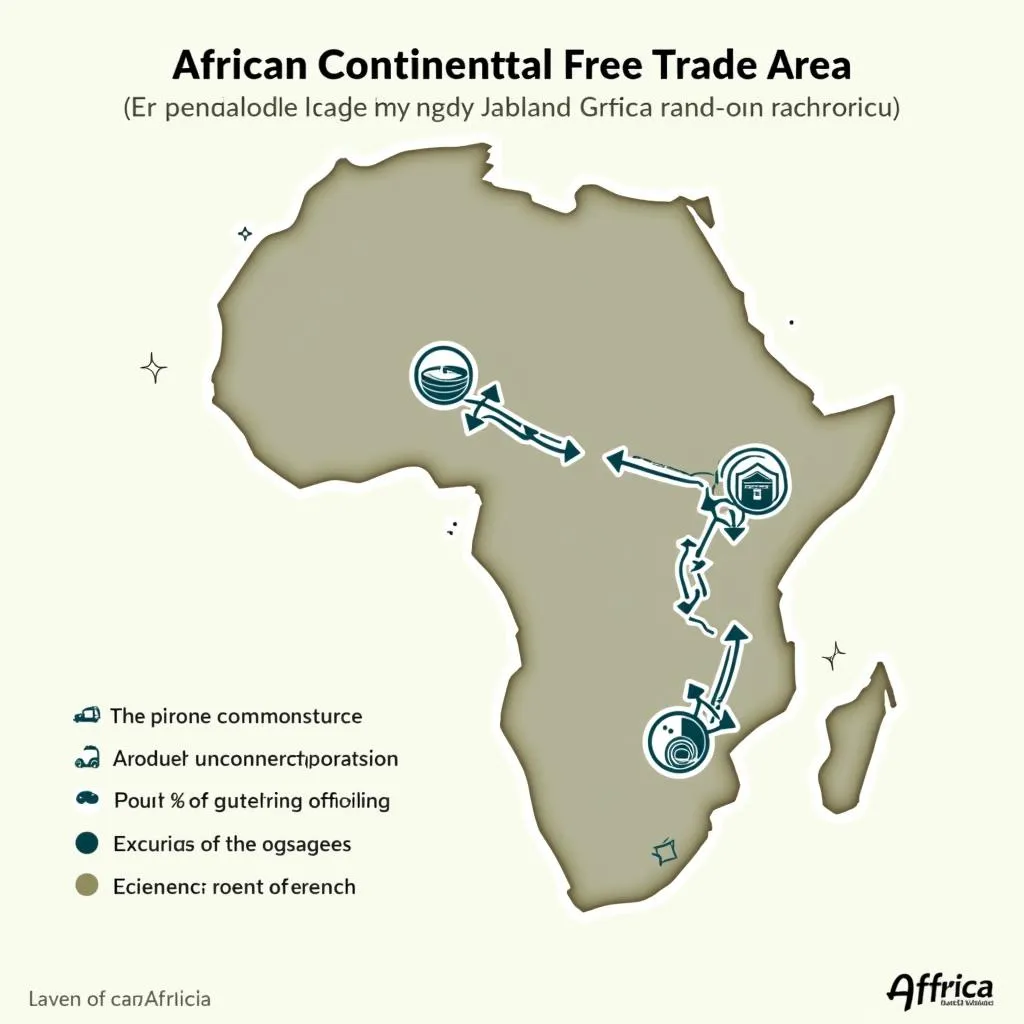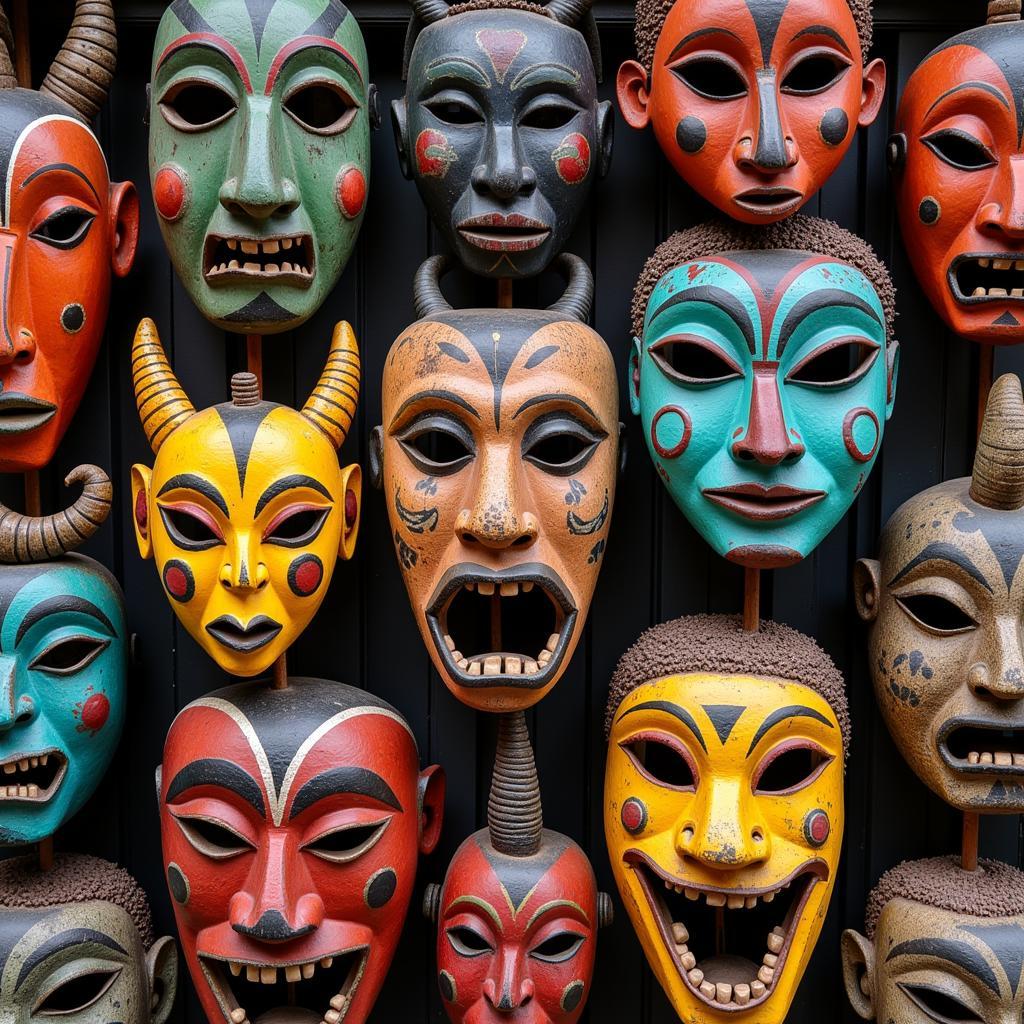Navigating African Economies: Understanding African Countries Currency Rating
With 54 diverse nations, Africa boasts a complex economic landscape reflected in its array of currencies. Understanding the factors influencing African Countries Currency Rating is vital for anyone engaging in business, investment, or travel within the continent.
 African Currencies in the Global Market
African Currencies in the Global Market
Factors Influencing Currency Ratings
Several key factors contribute to how African currencies are evaluated on the global stage:
1. Economic Performance and Stability
A nation’s economic health directly impacts its currency’s value. Robust GDP growth, controlled inflation, and healthy foreign exchange reserves typically lead to stronger currency ratings. Conversely, economic instability, high debt, and political uncertainty can weaken a currency’s standing.
2. Commodity Dependence
Many African economies rely heavily on exporting raw materials like oil, minerals, and agricultural products. While this can be advantageous during global commodity booms, it also makes these currencies vulnerable to price fluctuations in the international market.
3. Political Climate and Governance
Political stability, good governance, and the rule of law are crucial for attracting foreign investment and fostering economic growth. Unstable political environments or perceptions of corruption can negatively affect currency ratings.
 Impact of Foreign Investment on African Currencies
Impact of Foreign Investment on African Currencies
4. Monetary Policy and Inflation
Central banks play a vital role in managing a nation’s money supply and interest rates. Sound monetary policies aimed at controlling inflation and stabilizing exchange rates are essential for maintaining a favorable currency rating.
5. External Debt Levels
High levels of external debt, especially in foreign currencies, can put downward pressure on a country’s currency. Servicing large debt burdens can deplete foreign currency reserves, weakening the currency’s value.
Challenges and Opportunities
While many African currencies face challenges, the continent also presents opportunities for growth and strengthening:
- Economic Diversification: Moving away from over-reliance on a single commodity and developing diverse industries can enhance economic resilience and currency stability.
- Improved Governance: Strengthening institutions, promoting transparency, and combating corruption can bolster investor confidence and attract foreign capital.
- Regional Integration: Fostering closer economic ties within regional blocs like the African Continental Free Trade Area (AfCFTA) can promote intra-African trade and reduce reliance on volatile global markets.
 African Continental Free Trade Area and Currency Stability
African Continental Free Trade Area and Currency Stability
Conclusion
Understanding the intricacies of African countries currency rating is crucial for navigating the continent’s dynamic economic landscape. By recognizing the factors at play, both challenges and opportunities, stakeholders can make informed decisions and contribute to sustainable economic growth and development in Africa.
FAQs about African Countries Currency Rating
1. What is the strongest currency in Africa?
The currencies of African Central Republic, Seychelles, and Mauritius are often considered among the strongest in Africa. However, it’s essential to note that currency strength can fluctuate.
2. How does the volatility of commodity prices impact African currencies?
Many African economies are heavily reliant on commodity exports. When commodity prices fall, it can lead to a decline in export earnings, putting downward pressure on currencies.
3. What is being done to improve the rating of African currencies?
Efforts to enhance fiscal discipline, diversify economies, attract foreign investment, and promote regional integration are underway to strengthen African currencies.
4. How do currency fluctuations affect tourism in Africa?
Fluctuations can make travel more or less expensive for foreign tourists. A weaker local currency can attract more tourists as their money goes further.
5. Where can I find real-time information on African currency rates?
Reputable financial websites and currency converter tools provide up-to-date exchange rate information.
Looking for more information about African currencies and economies?
Explore these related articles:
- African Countries Gold Rate
- 20 South African Money
- African Banknotes For Sale
- African Currency Vs Indian Rupees
For any inquiries or assistance regarding African currency matters, reach out to our dedicated team:
Phone: +255768904061
Email: kaka.mag@gmail.com
Address: Mbarali DC Mawindi, Kangaga, Tanzania
We’re available 24/7 to provide comprehensive support and address your needs.

